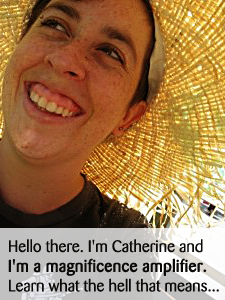Tewodros was born and raised in Algeria, in the hard sands of the Sahara desert. So when he and his family moved to France when he was seven, at his first sight of the lush and verdant French countryside, Tewodros literally fell down. He was gobsmacked.
And so a fascination was born.
To the surprise of absolutely no one, he chose to study biology after school, gaining his masters and his doctorate in the field of grasses – a pun his father could never resist. (It’s a pun that works equally well in French as English, you know.)
Tewodros wrote, he pioneered studies, he met a schoolteacher named Jean during a speaking tour, he and Jean signed a civil union, he identified new strains of grass, and he was happy.
Tewodros even achieved a small amount of celebrity. His Berber mother and Amhara father had produced three stunningly good-looking children – tall, dark, with white smiles and amazing cheekbones. The attractive scientist who spoke so well about grasses became the go-to expert for the media, and Tewodros became somewhat well-known, much to his embarassment at airports.
Of course the story doesn’t end here, because that would be very dull.
More and more, Tewodros had become fascinated with the idea of changing an ecosystem. You could use grasses to tie down sand-dunes – he’d founded groups to do that very thing in Algeria. But could you encourage a desert to return to the verdant plain it had once been?
This new focus required much more understanding of geology, soil chemistry, biomass increase and a hundred other topics than he currently possessed. Tewodros, undaunted, started hitting the books and getting involved in this new field of study. (His dad’s joke was even more apt, much to his delight. “His field of study? He’s studying fields! Ah ha ha ha!”)
He started writing papers on this new topic, pioneered more studies, and attended different scientific conferences.
While on the panel at one of them, he contradicted himself – and one of his rival scientists, jealous of all of Tewodros’ television time, cut him to ribbons.
Tewodros smiled politely, corrected himself, and shook it off.
But Jean came downstairs that night to find Tewodros pacing around the kitchen.
“Mon Dieu, cheri,” yawned Jean. “It’s 3am! Why don’t you make us some coffee and tell me what’s wrong.”
Over coffee the story came out. “I think that maybe I was wrong to choose this new focus. I was so good at grasses, and ecology-changing is impossible. Maybe it’s just not right for me.”
“Is this about that stupid panel?”
“No. Well, a little. But also it’s about other things. I mean, it takes me one month to write a research paper on rhizomes. But this new one on first-stage soil reclamation has been going for six months, and I still don’t think it’s solid enough to publish yet! And everything in this new works feels like that – hard. And uncertain.”
“You’ve been much more quiet in debates, I have noticed that.”
“Yes, because I’m not sure that I’m right! I feel like I wandered into the wrong discussion, and if I make any comments then I’ll just stand out as the big idiot that I am.”
“It’s lucky for you, cheri, that you have a schoolteacher for a partner. Because I know what’s wrong.”
The conversation gets theoretical.
“In teaching, we talk about the four stages of competence.”
“Theories of learning? Now? If you insist.”
“I’m ignoring that. *ahem* We’ll use your grasses as an example. In the first stage, unconscious incompetence, you don’t know about grasses, and you don’t know you don’t know.”
“Yes, I’d heard of them, but I’d never seen true grasses. I had no idea what they were.”
“Exactly. In the second stage, conscious incompetence, you know that you don’t know.”
“And I wanted to know! I was totally fascinated.”
“So you studied and moved to the third stage, conscious competence. You know that you know, and with conscious effort you can start to make things happen.”
“My first experiments? They were so satisfying.”
“And finally, you moved into unconscious competence. You don’t know that you know, it just happens on autopilot.”
“How do you mean?”
“Explain how stoma work.”
“Oh, that’s simple! There are a pair of guard cells…”
“Yes, cheri, you don’t actually have to tell me. But did you see how there was absolutely no delay in your answer? You didn’t need to think about it at all. That’s unconscious competence.”
“So what does this have to do with my current problem?”
The conversation stays theoretical.
“Okay, when we talk about grasses you are at stage four of competence: it’s supremely easy for you. But in ecology transformation you’re only at stage three. You’re competent, but only with conscious effort. Which is why it feels hard, and why you can make small mistakes when your concentration wavers.”
“I accept that. Actually, that’s kind of a relief. So I’m not bad at my new study?”
“No, it just feels hard by comparison. Because by comparison, it IS hard – it requires a lot more effort from you.”
“And that’s why I feel like a fool in the panels?”
“Mostly. I’d also call it a small case of imposter syndrome. You’re at stage three in a room of mostly stage fours – people who can answer questions much more quickly, with deeper access to context, with more synthesis of unrelated concepts, all of those skills you can use better with unconscious competence. It’s not surprising that you feel somewhat dense in their company.”
“So I should stop attending the conferences until I get more competent.”
“What? No! This is HOW you grow your competence, cheri. If you stop attending these conference and submitting papers and all the rest, you will never get to stage four. It requires experience.”
Tewodros frowns.
“I don’t remember it being anywhere near this hard when I was studying grasses.”
“Well, it probably wasn’t, cheri. For one thing, you were much younger. For the second, you were completely infatuated with your first ever field of study. And thirdly, you didn’t have as much face to lose. You could screw up much more often without feeling that anyone noticed, or cared.”
“So why the hell am I doing this, instead of staying with my grasses?”
“Because you were getting a wee bit bored. Because you thrive on challenge. And because you want to make the deserts bloom.”
Tewodros smiles and his shoulder relax. “Of course, you are right. Any advice, wise teacher?”
“I do love to give advice, cheri.”
Jean gave his advice, and Tewodros took it. So of course the story ends happily.
The moral of the story, and the advice.
There are two ways to not feel that uncomfortable consciousness of our competence: never learn anything, or achieve mastery.
I assume you’re choosing the second option, otherwise why would you be here? So here is the distillation of Jean’s advice.
When you’re in stage one – unconscious incompetence.
You don’t even know you’re here, so there’s no advice needed.
Enjoy that blissful ignorance.
When you’re in stage two – conscious incompetence.
The itch is driving you crazy. Research like a mad bastard. Drink in video, articles, books. Press pause, theorise about what comes next. Try explaining it to the dog.
Be confident: to admit that you don’t know. No-one came out of the womb knowing all of this, and there’s nothing more powerful than being strong enough to admit ignorance. (Nor is there anything more likely, combined with respectful requests, to get you help.)
Don’t: passively imbibe. Draw frameworks of how this information fits together, and improve your models with your understanding.
Enjoy: the lightbulbs snapping on inside your skull.
When you’re in stage three – conscious competence.
You’ve got an excellent grounding. Time to start doing the work. Write articles, create offerings, make your own theories. Explore new ideas, and re-explore old ones from your own perspective.
Be confident: to admit that you do know. It doesn’t feel easy all the time, but you have value to offer. Be strong enough to announce your competence. Start making offerings.
Don’t: compare yourself with the stage fours or believe that you suck at this because clearly it’s easy for that guy. Once they were where you are now, and the only reason they’ve made it to Easyville is because they persevered through this stage. Learn from that, and keep plugging away.
Enjoy: the first successes of competence.
When you’re in stage four – unconscious competence.
You’re amazing at this. Change the playing field. Question the unquestioned paradigms, explore new territory, synthesize concepts in new and illuminating ways.
Be confident: to go it alone. The beaten path isn’t going to cut it any more, and you have more to offer. Be strong enough to follow your instincts. Start building new methods.
Don’t: get wrapped up in your title. You haven’t reached the end of learning, and you will still make mistakes. If you create a persona of perfection, you won’t be able to experiment – stagnation and scandal are waiting close by with sharp scissors and grins.
Enjoy: the sweet glory of mastery.
That Jean sure is a smart fella. If you have any counter-advice for him, or other thoughts on the subject, add your comments below.
And if you’re in stage three and ready to start making offerings that succeed, then Cash and Joy Foundations is here to help. Learn more about how you can build your business.
![]() photo credit:
photo credit:








Pingback: The Marketing Protest Carnivale